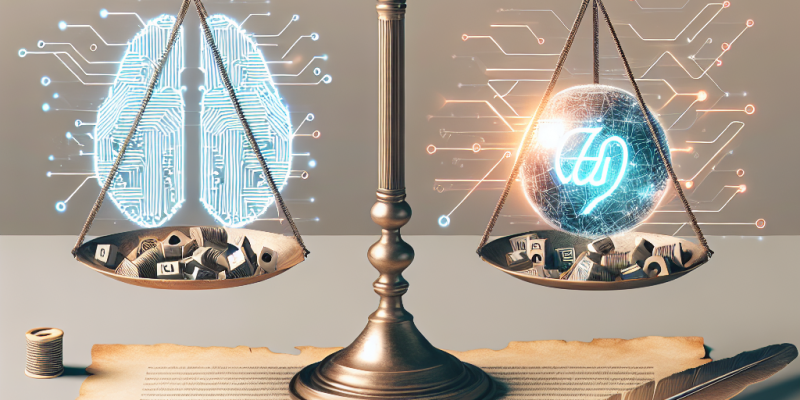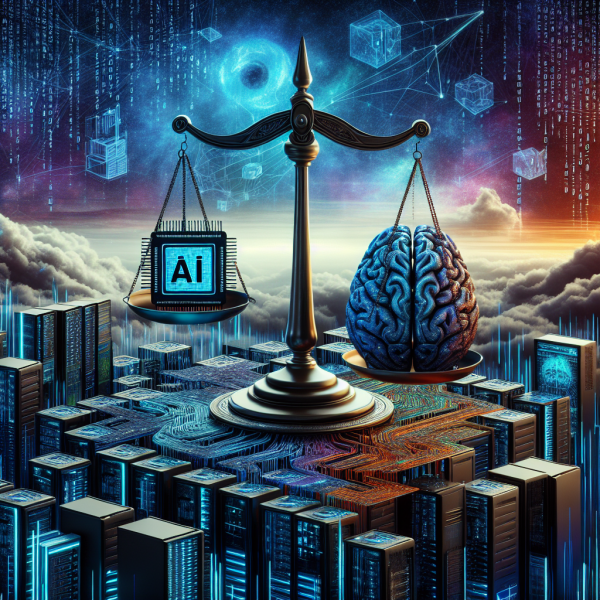Can Ethics Keep Up with AI? A Call for Comprehensive Regulation

As artificial intelligence (AI) continues to evolve at an unprecedented pace, the urgent question of whether ethical frameworks can keep up with these technological advancements has emerged as a topic of critical debate. The transformative potential of AI holds immense promise, but it also raises ethical dilemmas that challenge traditional moral reasoning. This article explores the intersection of AI and ethics, highlighting the need for comprehensive regulation to ensure that the benefits of AI are realized while mitigating its risks.
The Rapid Evolution of AI
AI technologies are now integral to nearly every aspect of modern life—from personal assistants like Siri and Alexa to more complex systems employed in healthcare, finance, and autonomous vehicles. Machine learning, natural language processing, and computer vision have made significant strides, enabling machines to perform tasks previously believed to require human intelligence. However, this rapid advancement has far outpaced the development of ethical guidelines designed to govern AI applications.
Ethical Dilemmas in AI
1. Bias and Discrimination
AI systems are often trained on large datasets that may contain intrinsic biases. These biases can perpetuate discrimination based on race, gender, and socioeconomic status, leading to unfair outcomes in areas such as hiring, law enforcement, and lending. The ethical implication is clear: if AI is to serve society fairly, it must be designed and regulated to minimize bias.
2. Privacy Concerns
With AI’s capacity to process vast amounts of personal data, privacy has become a significant ethical concern. Surveillance technologies powered by AI raise questions about the extent to which individuals are monitored and whether their consent is obtained. The ethical principle of autonomy is at stake when individuals are surveilled without their knowledge or permission.
3. Accountability and Transparency
As AI systems become more autonomous, determining accountability for decisions made by machines becomes increasingly complex. When an AI system fails or causes harm, who is responsible—the developer, the user, or the machine itself? Establishing clear lines of accountability is crucial for ethical governance and will necessitate comprehensive regulatory frameworks.
4. Employment and Economic Disruption
The automation of jobs through AI poses ethical questions regarding the future of work and economic equity. While technology has historically displaced jobs, the speed and scale of AI-driven automation may exacerbate income inequality and lead to social unrest. Ethical considerations must be taken into account to balance innovation with the social responsibility of safeguarding employment.
The Necessity of Comprehensive Regulation
Given these pressing ethical dilemmas, there is a growing call for comprehensive regulation that can keep pace with AI’s rapid development. Current regulatory measures are often fragmented and reactive, rather than proactive and coherent. Here are key areas where regulation is urgently needed:
1. Establishing Standards for Fairness
Regulatory bodies must develop standards to assess and mitigate biases in AI algorithms. This includes mandates for diverse training datasets, regular audits, and transparency in how AI systems make decisions. Bias in AI should not only be recognized as a technical issue but as a critical ethical concern that requires rigorous oversight.
2. Data Protection Laws
Stronger data protection laws must be enacted to address the privacy concerns associated with AI technologies. These laws should empower individuals to control their personal information and ensure that consent is a prerequisite for data collection and usage.
3. Promoting Accountability Frameworks
Regulations should define clear accountability mechanisms for AI systems. This may involve the creation of a new legal category that recognizes the unique challenges posed by autonomous systems, enabling courts to handle cases that involve AI-related harm more adeptly.
4. Fostering Inclusivity in AI Development
To prevent exacerbating existing inequalities, regulations should encourage collaboration across diverse sectors, including government, industry, academia, and civil society. Engaging various stakeholders ensures that ethical considerations reflect a wide range of perspectives and values.
Conclusion
The question of whether ethics can keep up with AI is not merely academic; it is a pressing societal concern that demands urgent action. As AI technologies continue to shape our world, comprehensive regulatory frameworks must be developed and implemented to address the ethical dilemmas they present. By prioritizing fairness, accountability, and transparency, we can harness the potential of AI while safeguarding the values that underpin a just society. The future of AI doesn’t solely depend on technological advancements; it also rests on our collective commitment to ensuring that these innovations serve humanity ethically and equitably.














